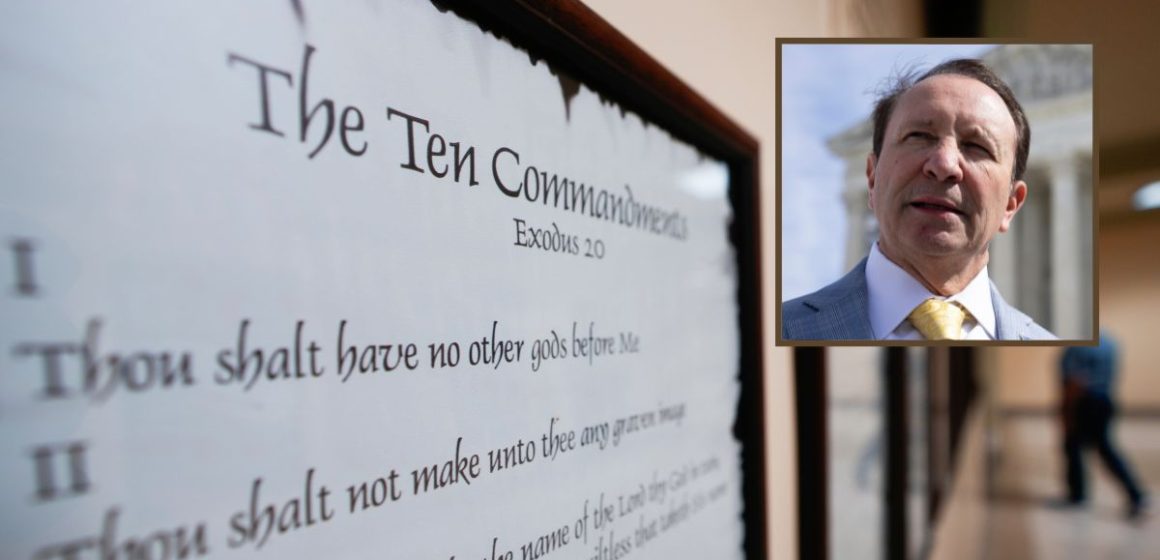A federal judge ruled Tuesday that the new Louisiana law requiring the Ten Commandments to be displayed in every public classroom by Jan. 1 is “unconstitutional on its face” due to its “overtly religious purpose.”
Louisiana became the first state to require that the Ten Commandments be displayed in every public school classroom when it passed the law in June. The statute required that by Jan. 1, 2025, all public school classrooms in the state must display the Ten Commandments “on a poster or framed document that is at least eleven inches by fourteen inches,” in “a large, easily readable font.”
Gov. Jeff Landry, a Republican, initially said, “I can’t wait to be sued,” over the statue’s legality, arguing that it had historical merit as a way of respecting Moses as “the original law giver.” A group of nine multifaith families challenged the law in court and U.S. District Judge John W. deGravelles, a Barack Obama appointee, agreed with them. DeGravelles said the Louisiana statute was “overtly religious.”
The judge rejected the state’s argument that its interest was in focusing on history rather than religion, and said the argument was unpersuasive given that no other foundational documents, such as the Constitution or the Bill of Rights, were also included in the statute’s mandate.
DeGravelles granted a preliminary injunction blocking the law, and said that the challengers to the law are likely to win their underlying lawsuit. The court said that the critical determination was that the law’s mandate was “coercive,” in light of school attendance requirements, and that non-Christian students would be isolated by having a large display of the Ten Commandments in classrooms.
The judge called out Louisiana on its unpersuasive argument that to mount a successful challenge, plaintiffs would need to prove that there is “no set of circumstances under which” the Ten Commandments could be legally posted. Rather, the judge said, “the question is not whether the Biblical laws can ever be put on a poster; the issue is whether, as a matter of law, there is any constitutional way to display the Ten Commandments in accordance with the minimum requirements of the Act.”
DeGravelles said that Louisiana, “would have aggrieved parents and children play an endless game of whack-a-mole, constantly having to bring new lawsuits to invalidate any conceivable poster that happens to have the Decalogue on it.”
Over 40 years ago, the U.S. Supreme Court struck down a Kentucky statute similar to the Louisiana statute at issue here. No ruling has ever overturned that precedent, and several later cases reinforced its holding. In recent years, other states, including Texas, Oklahoma, and Utah, have also attempted to enforce similar requirements in classrooms, but as yet, none have successfully overcome legal challenges.
An appeal of DeGravelles’ opinion would end up before the ultraconservative U.S. Court of Appeals for the Fifth Circuit — a court that has been willing in recent years to expand the boundaries of “religious liberty.”
You can read the full ruling here.
Have a tip we should know? [email protected]
Note: Thank you for visiting our website! We strive to keep you informed with the latest updates based on expected timelines, although please note that we are not affiliated with any official bodies. Our team is committed to ensuring accuracy and transparency in our reporting, verifying all information before publication. We aim to bring you reliable news, and if you have any questions or concerns about our content, feel free to reach out to us via email. We appreciate your trust and support!


